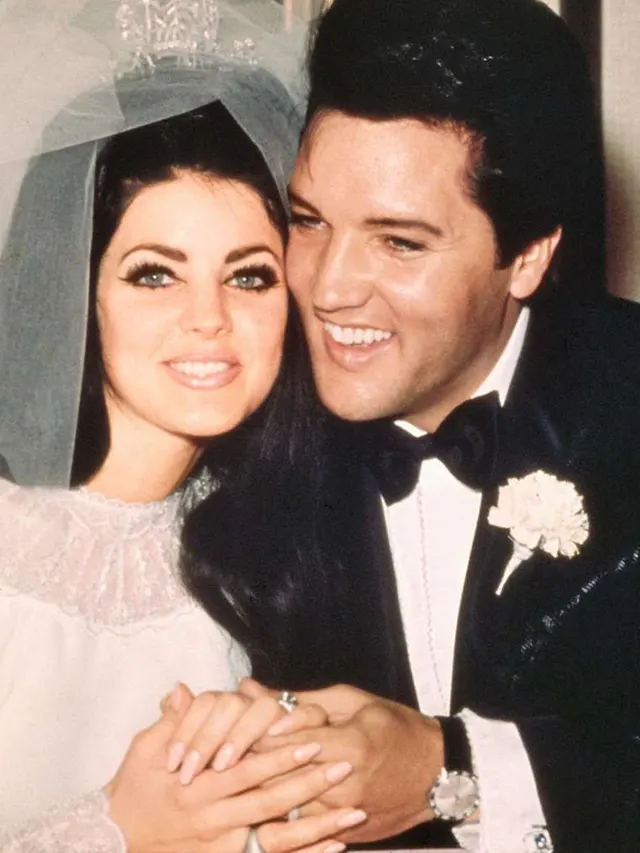Elvis Presley Journey: A Thrilling Journey of the Best of Rock ‘n’ Roll in 2023
Elvis Presley Journey
Elvis Presley, often referred to as the “King of Rock and Roll,” embarked on a legendary musical odyssey that left an indelible mark on the world of music and popular culture. His journey began in Tupelo, Mississippi, on January 8, 1935, where he was born to humble beginnings. Raised in a working-class family, young Elvis showed an early affinity for music, influenced by the gospel and blues sounds that permeated the South. This early exposure laid the foundation for what would become an extraordinary career.
In 1948, Elvis Presley’s journey took a pivotal turn when his family relocated to Memphis, Tennessee. It was in this vibrant musical city that he found himself immersed in a melting pot of musical styles, from gospel and R&B to country and rockabilly. This diverse musical environment became the crucible in which Presley’s unique sound began to take shape. His fusion of these genres would go on to revolutionize the music industry.
Elvis Presley’s journey to stardom reached a historic milestone in 1954 when he walked into the doors of Sun Records and recorded his first single, “That’s All Right.” This release marked a seismic shift in the music landscape, as Presley’s electrifying voice and charismatic stage presence captivated audiences across the nation. The world had never seen or heard anything quite like Elvis, and he quickly ascended to unprecedented heights of fame.
The mid-1950s witnessed the explosion of the Elvis Presley phenomenon, with hits like “Heartbreak Hotel,” “Hound Dog,” and “Love Me Tender” dominating the charts. His dynamic performances on television and in films solidified his status as a cultural icon. However, Elvis Presley’s journey was not without its challenges. The pressures of fame, coupled with personal struggles, would shape the course of his career and life.
As the 1960s unfolded, Elvis Presley’s journey took a new direction with a focus on film and a shift in musical style. Despite achieving continued success in both realms, he longed for creative evolution and a return to live performances. This desire culminated in his legendary 1968 televised comeback special, which marked a pivotal moment in his career. The intimate, stripped-down performance showcased the raw talent and magnetic presence that had initially catapulted him to stardom.
Elvis Presley’s journey continued through the 1970s with a series of iconic Las Vegas residencies and concert tours. He remained a beloved figure, captivating audiences with his unmatched stage presence. Tragically, the King’s journey was cut short on August 16, 1977, when he passed away at the age of 42. Despite his untimely departure, Elvis Presley’s legacy endures, his impact on music and popular culture immortalized for generations to come. The indomitable spirit and musical genius of Elvis Presley continue to inspire artists and captivate audiences around the world, ensuring that his extraordinary journey will forever be etched in the annals of music history.
What is the best Elvis biography?
When it comes to finding the best Elvis biography, there are several standout options that provide comprehensive insights into the life and legacy of the King of Rock and Roll. One of the most highly acclaimed Elvis biographies is “Last Train to Memphis: The Rise of Elvis Presley” by Peter Guralnick. This meticulously researched work delves deep into the early years of Elvis’s life, offering a vivid portrayal of his upbringing in Tupelo, Mississippi, and his transformation into a groundbreaking musical force. Guralnick’s narrative style and attention to detail make “Last Train to Memphis” an essential read for anyone seeking a thorough understanding of Elvis Presley’s formative years.
Another notable Elvis biography is “Careless Love: The Unmaking of Elvis Presley,” also penned by Peter Guralnick. This second volume serves as a compelling continuation of Elvis’s story, chronicling his meteoric rise to fame, as well as the challenges and complexities he faced in the later stages of his life. “Careless Love” provides a candid look at the personal struggles and the evolving music industry landscape that shaped the latter part of Elvis’s career. Guralnick’s extensive interviews and exhaustive research make this biography a definitive account of the King’s life.
For those seeking a different perspective, Albert Goldman’s controversial biography, “Elvis,” offers a more provocative take on Elvis Presley’s life. While met with mixed reviews and some controversy due to its sensationalist approach, Goldman’s work provides a detailed examination of the darker aspects of Elvis’s personal life and the complexities of his relationships. It’s important to approach this biography with a critical eye, as it offers a more sensationalized portrayal compared to other, more balanced accounts.
A more recent addition to the canon of Elvis biographies is “Elvis Presley: A Southern Life” by Joel Williamson. This biography takes a regional approach, placing Elvis within the context of the American South and exploring how his Southern roots influenced his music and persona. Williamson provides a nuanced portrayal of Elvis’s cultural impact and sheds light on the socio-cultural dynamics of the era.
Ultimately, the best Elvis biography for any reader may depend on their specific interests and preferences. Each of these biographies offers a unique perspective on the life and career of Elvis Presley, allowing readers to gain a deeper appreciation for the complex and influential figure that he was. Whether one is drawn to a comprehensive account of his early years, a probing exploration of his personal struggles, or a contextualization within the Southern cultural landscape, there is a biography available to cater to every aspect of Elvis’s multifaceted legacy.
How was Elvis Presley influential to music?
Elvis impact on music is nothing short of revolutionary, reshaping the musical landscape in ways that continue to reverberate to this day. One of the most profound ways in which Elvis impact was felt was through his fusion of diverse musical genres. Drawing from gospel, blues, country, and R&B, Elvis created a sound that transcended traditional boundaries. This innovative blend gave birth to what we now know as rock and roll, a genre that would go on to define an era and lay the foundation for countless artists to come.
Elvis impact on music extended beyond his groundbreaking sound. His stage presence and performance style were unparalleled, setting a new standard for live entertainment. His dynamic, energetic performances electrified audiences, breaking free from the static, reserved stage presence that was prevalent in the music industry at the time. Elvis brought a level of charisma and raw energy that was transformative, forever altering the expectations of what a live music experience could be.
Moreover, Elvis impact on music was not confined to the studio or the stage. He played a pivotal role in breaking down racial barriers in the music industry. In an era marked by segregation and discrimination, Elvis’s ability to blend diverse musical styles helped bridge the gap between white and black music. His renditions of songs originally performed by black artists brought attention to their talents and helped pave the way for greater acceptance and recognition within the music industry.
Elvis impact on music also extended to his pioneering approach to music videos and visual media. His early appearances on television, including the iconic performance on “The Ed Sullivan Show,” marked a shift in how artists connected with their audiences. These televised performances not only catapulted Elvis to super-stardom but also set the stage for the music video phenomenon that would later become a staple of the industry.
Furthermore, Elvis impact on music can be seen in his enduring legacy. His record-breaking sales, chart-topping hits, and numerous accolades stand as a testament to his enduring popularity. His influence can be heard in the music of subsequent generations, with countless artists citing Elvis as a major inspiration for their own work.
In summary, Elvis impact on music, often referred to simply as the “Elvis impact,” is multifaceted and far-reaching. From his groundbreaking musical fusion to his electrifying stage presence, from his role in breaking down racial barriers to his pioneering contributions to visual media, Elvis impact on music is a testament to his status as a true musical icon. His legacy continues to shape the industry, serving as a source of inspiration for generations of artists who continue to build upon the foundation he laid.
How many albums did Elvis have?
Elvis Presley, a prolific recording artist, released a staggering number of albums during his illustrious career. From his debut in the mid-1950s to posthumous releases, the catalogue of Elvis albums is a testament to his enduring popularity and musical prowess.
In total, Elvis released over 70 original albums during his lifetime. These albums encompassed a wide range of musical styles, showcasing his versatility as an artist. From rock and roll to gospel, country to pop, each album offered a unique glimpse into Elvis’s diverse musical repertoire. Notable albums like “Elvis Presley” (1956), “Elvis Is Back!” (1960), and “From Elvis in Memphis” (1969) are just a few examples of the iconic records that contributed to his legendary status.
Following his passing in 1977, the release of Elvis albums continued, with an array of posthumous compilations and previously unreleased material. These albums served to keep Elvis’s music alive for new generations of listeners and provided fans with additional insights into his creative process.
Among the posthumous releases, “The Number One Hits” (1987) and “The Top Ten Hits” (1987) are noteworthy compilations that encapsulate Elvis’s chart-topping success. These albums serve as a testament to his enduring popularity and the timeless appeal of his music.
Furthermore, special commemorative editions and themed compilations have been released over the years, celebrating specific aspects of Elvis’s career. These albums offer fans a curated selection of his work, often accompanied by insightful liner notes and bonus material.
In addition to studio albums, live recordings also form a significant part of the Elvis albums catalogue. Albums like “Elvis: Aloha from Hawaii via Satellite” (1973) and “Elvis in Concert” (1977) capture the electrifying energy of Elvis’s live performances, showcasing his undeniable talent as a performer.
In summary, the catalogue of Elvis albums is a testament to the enduring legacy of the King of Rock and Roll. With over 70 original albums released during his lifetime, supplemented by numerous posthumous compilations and special editions, Elvis’s music continues to resonate with audiences worldwide. His albums remain a cherished treasure trove of musical innovation and a testament to his unparalleled impact on the world of music.
Is Elvis memorabilia worth anything?
Elvis memorabilia holds a special place in the hearts of fans and collectors alike, and it can indeed hold significant monetary value. The worth of Elvis memorabilia is influenced by a variety of factors, including rarity, provenance, condition, and demand among enthusiasts. Items associated with the King of Rock and Roll, ranging from personal belongings to stage-worn outfits, have been known to fetch substantial sums at auctions and in private sales.
One of the most coveted categories of Elvis memorabilia is his clothing. Stage-worn jumpsuits, scarves, and accessories that Elvis wore during performances are highly sought after by collectors. These items, often accompanied by authentication certificates, can command high prices due to their direct connection to the iconic performer. The more elaborate and visually distinctive the outfit, the greater its desirability among collectors.
Autographed items also hold significant value in the realm of Elvis memorabilia. Authentic signatures from Elvis himself, particularly on photographs, albums, or personal items, are highly prized. The rarity of genuine Elvis autographs, coupled with their historical significance, contributes to their premium value in the collector’s market.
Original concert posters and promotional materials from Elvis’s performances are another category of memorabilia with substantial worth. These vintage posters, often featuring striking graphics and typography, are not only visually appealing but also serve as tangible relics of Elvis’s live shows. Their value is further enhanced if they are in good condition and feature iconic imagery associated with specific concerts.
Personal belongings of Elvis, such as jewelry, sunglasses, and even items from Graceland, his famed estate, are also highly sought after. These pieces provide a direct link to the King’s life and style, and collectors are willing to pay a premium for these tangible connections to the legendary musician.
It’s worth noting that the market for Elvis memorabilia is dynamic and can fluctuate over time. Major events, such as anniversaries or significant cultural moments, can impact the demand and subsequent value of these items. Additionally, the emergence of new collectors and enthusiasts can introduce fresh interest and competition, further influencing the market.
In conclusion, Elvis memorabilia is indeed worth a considerable amount to collectors and fans alike. Whether it’s clothing worn by the King, autographed items, vintage concert posters, or personal belongings, each piece holds a unique connection to the iconic musician. The rarity, provenance, condition, and demand for these items all play a role in determining their monetary value. As a result, Elvis memorabilia continues to be a thriving market, with enthusiasts eager to acquire these treasured pieces of music history.
What was Elvis Presley’s biggest selling song?
In Elvis Presley’s extensive discography, one song stands out as his biggest selling hit: “It’s Now or Never.” Released in 1960, this iconic ballad quickly soared to the top of the charts and became a massive commercial success. The song’s unique blend of operatic influence and heartfelt lyrics struck a chord with audiences around the world, making it a standout in Elvis’s illustrious career.
“It’s Now or Never” was inspired by the classic Neapolitan song “O Sole Mio,” but its English lyrics, penned by Wally Gold and Aaron Schroeder, added a new dimension to the melody. This adaptation showcased Elvis’s versatility as an artist, demonstrating his ability to infuse different musical styles into his repertoire. The song’s emotive delivery, coupled with Elvis’s powerful vocals, solidified its status as an enduring classic.
The impact of “It’s Now or Never” on Elvis’s discography was monumental. It not only topped the charts in multiple countries but also achieved unprecedented sales figures. In the United States, the single was certified Platinum by the Recording Industry Association of America (RIAA), signifying over one million units sold. This record-breaking success firmly established “It’s Now or Never” as one of the best-selling songs in Elvis Presley’s discography.
Beyond its commercial achievements, “It’s Now or Never” became a cultural touchstone, influencing subsequent generations of musicians and leaving an indelible mark on the music industry. The song’s timeless appeal endures to this day, with its memorable melody and evocative lyrics continuing to resonate with listeners worldwide.
While “It’s Now or Never” holds the distinction of being Elvis Presley’s biggest selling song, it is just one of many remarkable tracks in his extensive discography. His musical legacy spans a wide range of genres and styles, showcasing his versatility and enduring appeal. Each song in Elvis’s discography contributes to the rich tapestry of his legendary career, leaving an indelible imprint on the history of music.
What was Elvis Presley greatest achievement?
Elvis Presley’s greatest achievement lies in his transformation of the music industry and the cultural landscape as a whole. His impact transcends mere commercial success, marking a seismic shift in the way music was created, performed, and consumed.
One of Elvis Presley’s most significant achievements was his pioneering fusion of musical genres. Drawing inspiration from gospel, blues, country, and R&B, Elvis crafted a sound that defied categorization, giving birth to what we now know as rock and roll. This revolutionary blend of styles not only captivated audiences but also laid the groundwork for countless artists who would follow in his footsteps.
Elvis Presley’s influence extended beyond the realm of music. He played a pivotal role in breaking down racial barriers, particularly during a time of intense segregation in the United States. Elvis’s ability to connect with audiences across racial lines, through his music and his performances, helped to bridge divides and challenge societal norms. His renditions of songs originally performed by black artists brought attention to their talents and contributed to the greater acceptance of black music within the mainstream.
Another remarkable achievement in Elvis Presley’s career was his unprecedented success in both music and film. He seamlessly transitioned from the stage to the silver screen, becoming a box office sensation. Elvis’s films, while sometimes criticized for their formulaic plots, were immensely popular and contributed significantly to his cultural impact. His ability to excel in multiple entertainment mediums solidified his status as a true cultural icon.
Furthermore, Elvis Presley’s achievements include his enduring popularity and influence, even decades after his passing. His records continue to sell, and his music remains a source of inspiration for countless artists across genres. His image, style, and persona have become ingrained in the fabric of popular culture, a testament to his lasting legacy.
Perhaps the most enduring achievement of Elvis Presley is his ability to connect with people on a deeply emotional level. His music transcends time and generations, resonating with listeners of all ages. Whether through the raw emotion in his voice or the relatability of his lyrics, Elvis has touched the hearts of millions around the world.
In summary, Elvis Presley’s greatest achievement is the profound and lasting impact he had on music, culture, and society at large. His ability to innovate within the musical landscape, challenge societal norms, excel in multiple entertainment mediums, and continue to resonate with audiences today cements his legacy as one of the most influential figures in the history of popular music. Elvis Presley’s achievements are a testament to his status as the King of Rock and Roll and a cultural icon whose influence will continue to be felt for generations to come.
Related Links
Related Links
Conclusion:
Elvis Presley, the King of Rock and Roll, remains an indelible figure in the annals of music history. His influence transcends time and genre, leaving an enduring legacy that continues to shape the world of entertainment. From his groundbreaking fusion of musical styles to his charismatic stage presence, Elvis revolutionized the music industry, setting a new standard for live performances.
Beyond his musical prowess, Elvis Presley played a pivotal role in breaking down racial barriers, using his platform to bridge divides and challenge societal norms. His ability to connect with audiences across racial lines was instrumental in the acceptance of black music within the mainstream.
Elvis’s achievements extended beyond the realm of music, as he seamlessly transitioned into the world of film, becoming a box office sensation. His cultural impact is further evidenced by his enduring popularity and influence, even decades after his passing. His records continue to sell, and his image and style remain iconic, ingrained in the fabric of popular culture.
Ultimately, Elvis Presley’s greatest achievement lies in his ability to evoke profound emotions in listeners and to leave an indelible mark on the hearts of millions. His music, characterized by its raw emotion and relatable lyrics, continues to resonate across generations, a testament to the timeless appeal of the King of Rock and Roll. Elvis Presley’s legacy is not only a testament to his musical genius, but also a testament to his status as a cultural icon whose influence will continue to shape the world of entertainment for generations to come.
FAQs:
Q: When and where was Elvis Presley born?
Answer: Elvis Presley was born on January 8, 1935, in Tupelo, Mississippi, USA.
Q: What were some of Elvis Presley’s most famous songs?
Answer: Some of Elvis Presley’s most famous songs include “Hound Dog,” “Jailhouse Rock,” “Love Me Tender,” “Can’t Help Falling in Love,” and “Suspicious Minds,” among many others.
Q: How many albums did Elvis Presley release during his career?
Answer: Elvis Presley released over 70 original albums during his lifetime. Additionally, there have been numerous posthumous compilations and special editions released after his passing.
Q: What impact did Elvis Presley have on the music industry?
Answer: Elvis Presley had a profound impact on the music industry. He is credited with popularizing rock and roll and revolutionizing live performances. His ability to blend various musical genres and break down racial barriers also left an indelible mark on music history.
Q: What were some of Elvis Presley’s notable movies?
Answer: Elvis Presley starred in numerous films, including “Jailhouse Rock,” “Love Me Tender,” “Blue Hawaii,” “Viva Las Vegas,” and “G.I. Blues,” to name a few.
Q: How did Elvis Presley pass away?
Answer: Elvis Presley passed away on August 16, 1977, at the age of 42, due to a heart attack. His death was attributed to prescription drug misuse, which had taken a toll on his health in the years leading up to his passing.








